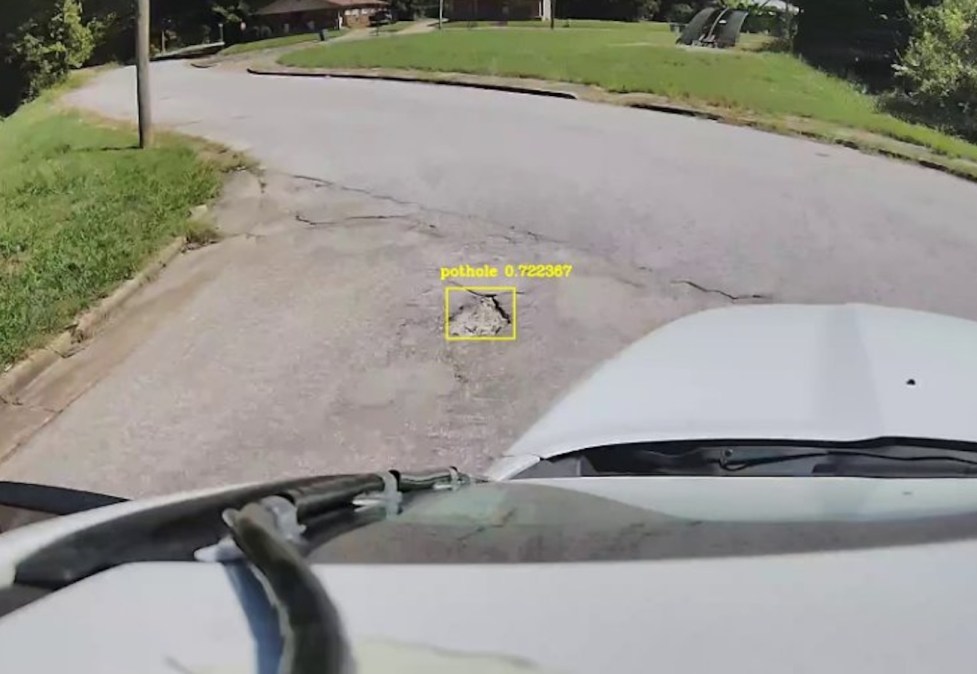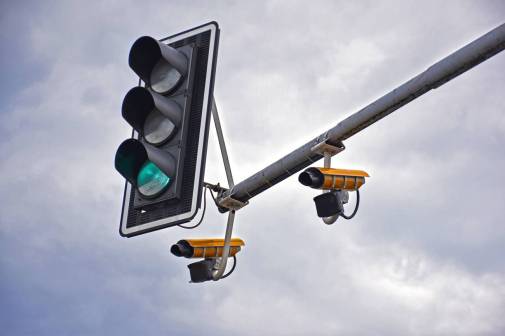Memphis piloting AI video tech equipped on city trucks to find, fix infrastructure issues

The Public Works Division of Memphis, Tenn., is currently piloting a program that uses video cameras equipped with artificial intelligence technology mounted on city trucks to automatically find and fix infrastructure issues.
The pilot program has been in the works for three years, and involves two cameras installed on Public Works vehicles that collect video footage of roadway and sidewalk conditions as they drive throughout Memphis. The footage is then processed through an AI model trained to detect issues such as potholes or trash, and with a 90% accuracy rate, the system automatically creates work ticket requests and sends them to the correct street maintenance crews for repair or clean-up. Based on the success of the pilot, city officials told StateScoop an official launch of the program is slated for February 2025.
Currently, the two video cameras are installed on four city trucks — one facing forward toward the roadway, and another on the passenger-side viewing properties along the sidewalk. So far, the model is able to detect four types of infrastructure issues: potholes, clogged storm drain inlets, high grass and illegally dumped trash.

Andre Armstrong, a division database manager for the City of Memphis that has been involved in the pilot since it started, said he facilitated the collaboration between the Public Works Division and Google, which hosts the city’s AI model on its cloud platform.
“The cameras send the video footage to an edge device that we have installed on the vehicle,” Armstrong told StateScoop. “Once that vehicle returns to its home base, it then uploads the video from the edge device over Wi-Fi, and essentially goes to Google Cloud platform, where it processes the machine-learning model and then, using vision AI, determines if these videos contain some of those anomalies.”
Armstrong said SpringML, a data analytics and machine-learning company that is now known as Egen, also helped to build the AI model on Google’s platform. He added that the city sent the company thousands of images of the types of infrastructure anomalies the city wanted the model to detect to help to train the machine-learning model.
According to Augustine Boateng, the city’s deputy chief information officer, more trucks are coming in the new year in tandem with the official launch of the program, along with expanded detection capabilities to potentially include broken curbs and gutters.
“We just want to really get the error level to a minimum, right. So currently, the accuracy when we started was about 60%, but I think currently we are about close to 90% accuracy on the detections,” Boateng told StateScoop, adding that there is also an error-detection mechanism built into the AI model, so that the same pothole or section of high grass is not duplicated as a work ticket.
Armstrong said the “idea was to help the City of Memphis Public Works Division to be more preventative in the forms of fixing potholes that arise throughout the year or any other infrastructure issues that are related to the Public Works Division.”
He said that while the initiative started under the previous mayoral administration, the Public Works Division has the support of Memphis Mayor Paul Young — who took office at the beginning of this year — to scale up the pilot program.
“That’s one of the highlights for our new mayor, is to kind of bring the city back to a clean, cleaner city that it was known to be at one point in time,” Armstrong added. “So we’re just trying to leverage technology to do just that, help maintain infrastructure and kind of stay abreast of new and upcoming tools that we can leverage.”






